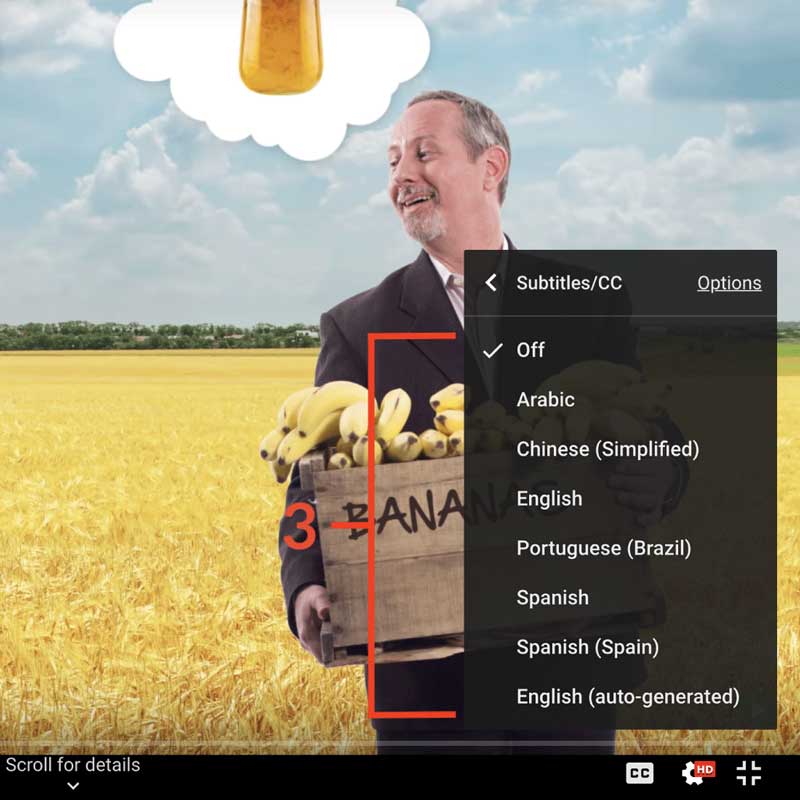How Expert Are Expert Stock Pickers?
Course Outline
How Expert Are Expert Stock Pickers?
In this first video in our Personal Finance section of Macroeconomics -- and also our new course on Money Skills -- we’ll begin to lay out some smart rules for investing.
Today, we’ll tackle Rule 1—ignore the expert stock pickers.
What’s the basis of that rule? Well, in his 1973 book, A Random Walk Down Wall Street, economist Burton Malkiel made a controversial claim. He claimed that a blindfolded monkey, throwing darts at the financial pages, could select a basket of stocks that would do just as well as a set chosen by the pros.
One of Malkiel's later students, the journalist John Stossel, set out to test that claim. Stossel did throw darts at the financial pages. The darts landed on 30 companies. Turns out, Malkiel did have it right—the randomly-selected stocks did better than professionally-picked ones.
The point here is, random picking roughly gives you as good results, as trusting the pros. Consider—in most years from 1963-2008, the S&P 500 Index outperformed most of the managed mutual funds. And in a different study, researchers took the top 25% best-performing funds. Two years later, less than 4% of the original set remained in the top quarter. Five years later? Only 1% stuck around.
Basically—past performance doesn’t guarantee future results. Chance often tends to win out.
To show you what we mean, take a hypothetical set of 1000 experts making market predictions. Let those predictions be based on a coin toss. Experts who land heads will say the market will surge this year. Those who land tails say the opposite. At the end of the experiment’s first year, 500 of the 1000 experts will have been right, solely by chance. Now, say the remaining 500 toss again. At the end of the second year, 250 experts will have been right, again by chance. Continue with this logic, and by the end of the fifth year, roughly 32 of the 1000 will have been right, five years running.
Perhaps these 32 will be hailed as geniuses, but remember, they only came about through a coin toss.
So, what’s to conclude from this? Two things.
First, luck and chance matter. In some cases, it can be hard to differentiate luck from skill, as proven by the “genius” 32. Second, no need to spend big bucks on a money manager. After all, the studies prove that random picking often works just as well as professional management.
That said, what if you did have market information? What if you knew something about certain stocks, that made you think they'd do well? Could you beat the market then? That’s what we’ll answer in our next video, when we tackle the efficient market hypothesis. Stay tuned!
Teacher Resources
Related to this course
See all Teacher Resources related to this course
Transcript
[Man on TV] You'll be under water! You'll be losing money! In other words, the dividend gain is not worth the principal loss. Whoa! I can't take the pain! That's when you want to be a buyer.
[Alex] The world of investment advice is a crowded and noisy place. The good news is, you can turn down the shouting. And you also don't have to follow stock quotes minute-by-minute in order to be a smart investor. In the next few videos, we're going to lay out some rules for smart investing. No, we're not going to tell you how to get rich quick, but we will give you some good advice for getting richer slowly and steadily.
Now let's start with Investment Rule #1: "Ignore the expert stock pickers." What if I told you that a blindfolded monkey throwing darts at the financial pages could select a basket of stocks that would do just as well as one chosen by the experts? That was the controversial claim made in 1973 by economist Burton Malkiel, in his book, A Random Walk Down Wall Street. Years later, one of his undergraduate students turned out to be journalist John Stossel. And Stossel -- he set out to test this claim.
Now, blindfolded, dart-throwing monkeys -- they're not easy to come by and the lawyer's a little bit worried, so Stossel threw the darts himself.
[John] My darts landed on 30 companies. How would they do compared to the stocks recommended by managed mutual funds? Oops! Better!
[Alex] Sure, Stossel got lucky on his throws and he reaped high returns. But the lesson here turns out to be correct. Random picking does just as well as the professionals.
Let's take a closer look. Most people invest in the stock market by buying a mutual fund, a portfolio of assets like stocks and bonds, managed by professionals. There's thousands of mutual funds. Some of them are actively managed. They have experts picking stocks and charging fees. The other type of mutual fund is called a passive mutual fund. Passive funds don't try to pick winners or avoid losers. They simply invest in a big basket of stocks such as the S&P 500.
Now this chart shows the percent of mutual funds that were outperformed by the S&P 500. You can see that in most years, the S&P 500 beat a majority of the actively managed mutual funds. Okay, so perhaps you're thinking, "I got it. Most mutual funds don't beat the market, but what if I invest in the ones that do beat the market?” The problem with this strategy is that the funds that beat the market are different every year. In other words, past performance does not predict future performance. The funds that beat the market this year -- they probably got lucky. And they're unlikely to beat the market next year.
In fact, one study looked at the 25% best-performing funds. How many of these funds were still top performers just two years later? Less than 4%. And after five years, only 1% of the initial top performers remained in the top quarter. So, funds which are great this year -- they're probably not going to be so great in the future. They probably just got lucky. Okay, what about those very, very few funds that do beat the market over many years? Hasn't Warren Buffett, for example -- the world's most successful investor -- hasn't he shown that you can beat the market? Maybe. There's no denying -- Buffett's a very smart guy; he's made some very good choices. But it's actually harder to distinguish luck from skill than you might imagine.
Let me explain. Imagine that we started with a thousand so-called experts, except all the experts do is flip a coin. Those who flip heads say the market is going to go up this year. Those who flip tails, say the market is going to go down this year. At the end of the year, 500 are going to be right -- purely by chance. Now suppose that those 500 then flip the coin again, and they make a new prediction. At the end of the second year, 250 of these so-called experts -- they'll have been right two years in a row. Again, purely by chance.
Now keep going with this logic. At the end of 5 years, just 32 of the original 1000 -- they will have been right about the market 5 years in a row. Now these 32 -- they'll probably be labeled market geniuses. They'll show up on television. Their services will be in high demand. Perhaps some of them will write books about how to predict the stock market and get rich quick. What the laws of probability tell us, however, is that out of the initial 1000 experts, about 32 were going to predict the market correctly no matter what the market did.
So, are some market geniuses truly skillful? Sure. But it also helps to be lucky. And it's sometimes not obvious which is more important. In recent years, in fact, Buffett's investments haven't done all that well. So, lesson number one is ignore the people who shout stock tips at you. [Man on TV] Dividends funded by debt and not excess free cash flow are just too risky to own from now on! [Alex] And definitely don't pay big bucks for professional money managers.
But what if you have some information about what looks like a great investment? Can you beat the market? Well we're going to cover that and the Efficient Market Hypothesis in the next video.
Subtitles
- English
- Spanish
- Chinese
- Hindi
- French
- Arabic
Thanks to our awesome community of subtitle contributors, individual videos in this course might have additional languages. More info below on how to see which languages are available (and how to contribute more!).
How to turn on captions and select a language:
- Click the settings icon (⚙) at the bottom of the video screen.
- Click Subtitles/CC.
- Select a language.


Contribute Translations!
Join the team and help us provide world-class economics education to everyone, everywhere for free! You can also reach out to us at [email protected] for more info.
Submit subtitles
Accessibility
We aim to make our content accessible to users around the world with varying needs and circumstances.
Currently we provide:
- A website built to the W3C Web Accessibility standards
- Subtitles and transcripts for our most popular content
- Video files for download
Are we missing something? Please let us know at [email protected]
Creative Commons

This work is licensed under a Creative Commons Attribution-NoDerivatives 4.0 International License.
The third party material as seen in this video is subject to third party copyright and is used here pursuant
to the fair use doctrine as stipulated in Section 107 of the Copyright Act. We grant no rights and make no
warranties with regard to the third party material depicted in the video and your use of this video may
require additional clearances and licenses. We advise consulting with clearance counsel before relying
on the fair use doctrine.


